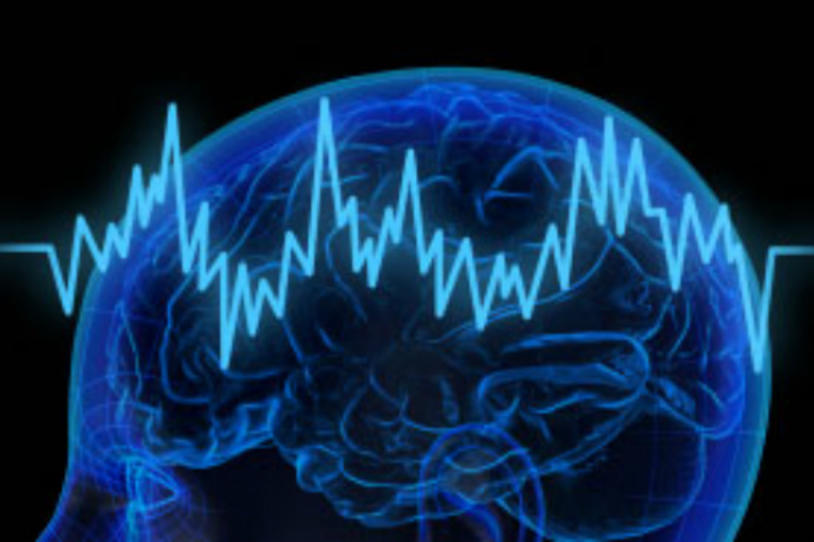
Cognitive changes -- such as those that affect memory, complex thinking or language abilities -- are a potential and important non-motor symptom of Parkinson's disease (PD). They can arise at any time during the course of disease and vary in severity. They may be subtle changes detectable only in formal testing, mild problems that don't interfere with daily activities, or significant problems that affect abilities to complete everyday routines. Not everyone with PD develops cognitive problems, and for those who do, not everyone will progress significantly. (Read more about cognitive changes in PD.)
Researchers and doctors are currently unable to definitively predict who with Parkinson's will develop cognitive changes, but a new study published in PLOS ONE is shedding light on potential biomarkers (objective measures) of cognitive changes and decline in early Parkinson's disease. The investigators, led by Daniel Weintraub, MD, professor of psychiatry at Perelman School of Medicine at the University of Pennsylvania and psychiatrist at the Parkinson's Disease and Mental Illness Research, Education and Clinical Centers (PADRECC and MIRECC) at the Philadelphia Corporal Michael J. Crescenz Veterans Affairs Medical Center, analyzed data from the Parkinson's Progression Markers Initiative (PPMI). PPMI is The Michael J. Fox Foundation's landmark observational study, in which over 1,000 people with and without PD are contributing their data over time in coordinated efforts to find Parkinson's biomarkers.
We spoke with Dr. Weintraub about what his team's research results mean for the Parkinson's community and how studies like PPMI are leading breakthroughs.
The Michael J. Fox Foundation (MJFF): Thank you for taking time to talk with us, Dr. Weintraub. What was the goal of your study?
Daniel Weintraub, MD (DW): The goal was to learn if certain clinical tests, such as genetic, spinal fluid, and brain imaging scans, could predict cognitive changes in the early stages of PD. We analyzed these measurements up to three years in 423 newly diagnosed Parkinson's patients who were not yet taking PD medication at the baseline visit. Over the same time period, we looked at if and how their cognition changed through detailed memory and thinking tests.
During the first few years after PD diagnosis, cognitive problems often are mild or slow to develop. Better understanding the predictors and causes of cognitive changes can drive research toward therapies that could potentially delay or prevent them, and improve quality of life.
MJFF: Tell us about the study results.
DW: We found evidence for several potential biomarkers of cognitive changes in early PD. These include:
- dopamine decrease on SPECT DaTScan (a specialized imaging of dopamine system integrity in key brain regions),
- brain structure changes (atrophy or thinning) on structural MRI (another specialized form of brain imaging),
- decreased amyloid beta protein (a misfolded protein found in Alzheimer's disease) in the spinal fluid, indicative of possible co-occurring Alzheimer's-related brain changes, and
- specific genetic variations.
MJFF: What do these results mean for the Parkinson's community?
DW: These findings need to be confirmed with additional and longer-term studies, but they give us a window into how and why cognitive problems develop in PD, and who will develop them. They indicate that the brain chemical dopamine, changes in brain size, the Alzheimer's disease protein amyloid, and genetics all could be independently contributing to cognitive changes in PD. Our results can lead toward research into a better understanding of the underlying mechanisms causing cognitive changes in PD and into potential treatments targeting them. Validating biomarkers to predict cognitive changes in early PD could fill the drug development pipeline with therapies focused on slowing or even preventing impairment.
This is really an area of unmet need for patients as, at this time, we don't have proven treatments for mild cognitive problems in PD, and treatments for Parkinson's disease dementia are limited.
MJFF: Why are studies like PPMI so important for Parkinson's research?
DW: PPMI offers a bigger group of PD participants than most studies, and it includes data from a population of people without Parkinson's -- two important components in conducting research. The study also collects many different measurements that often are difficult or expensive to obtain, and makes these assets available to researchers in real time. Many volunteers have been part of PPMI for five years or more, allowing investigators to evaluate the evolution of symptoms over time. Studies like PPMI lay important groundwork for future Parkinson's research and increase our ability to develop better assessment tools, advance new or improved disease-management tools and therapies, and deepen understanding of the mechanisms involved in PD progression.
Watch a video on cognitive changes and PD.
Learn more about PPMI and participation.
Read about a therapy in development for Parkinson's disease dementia.